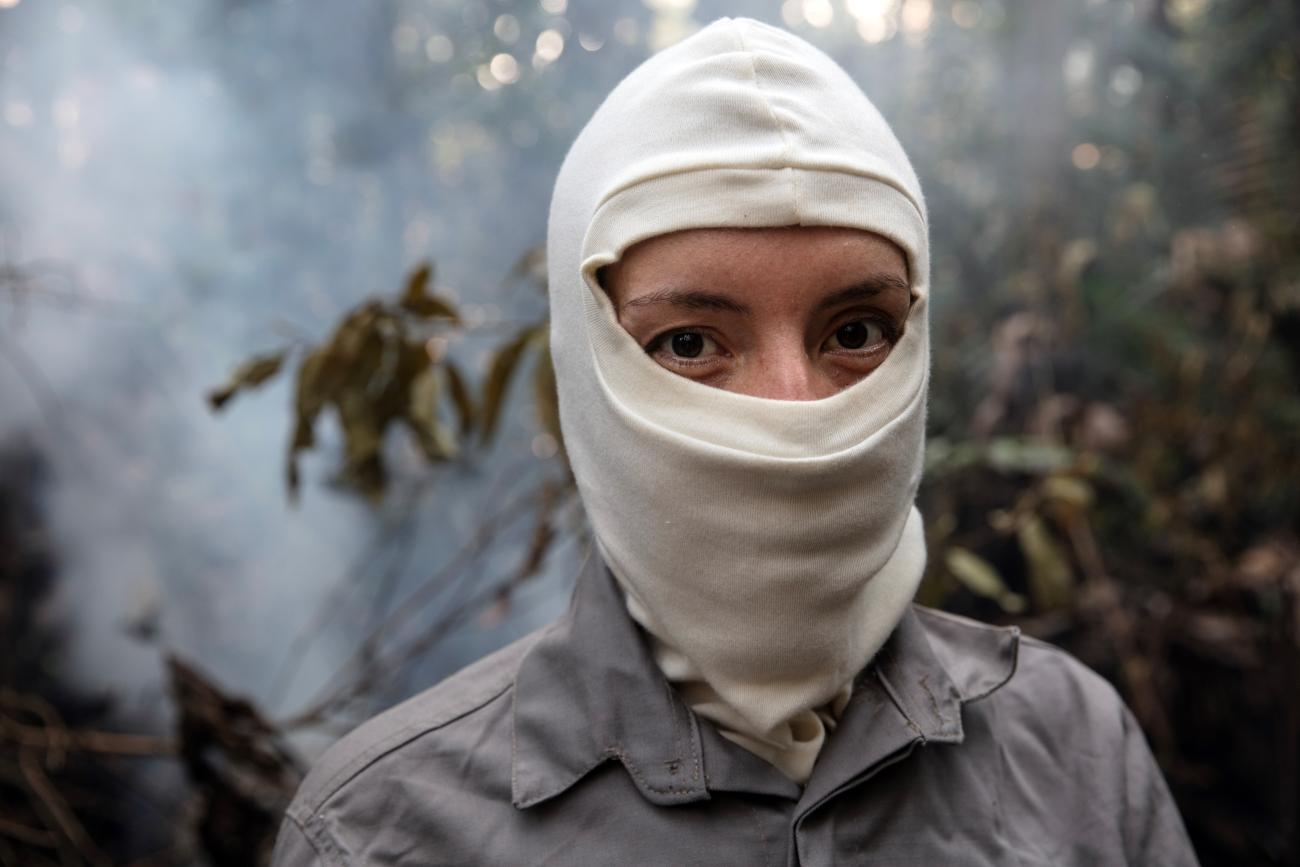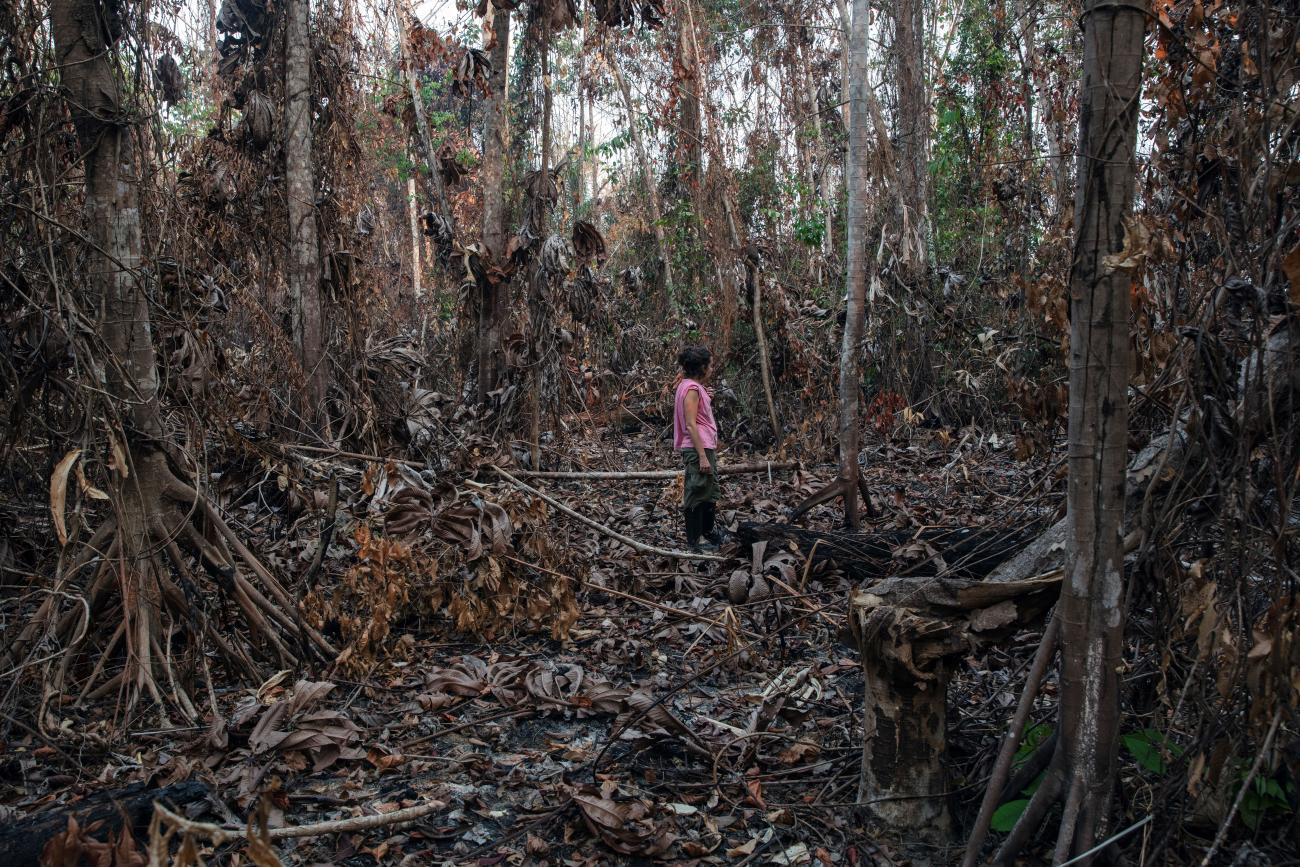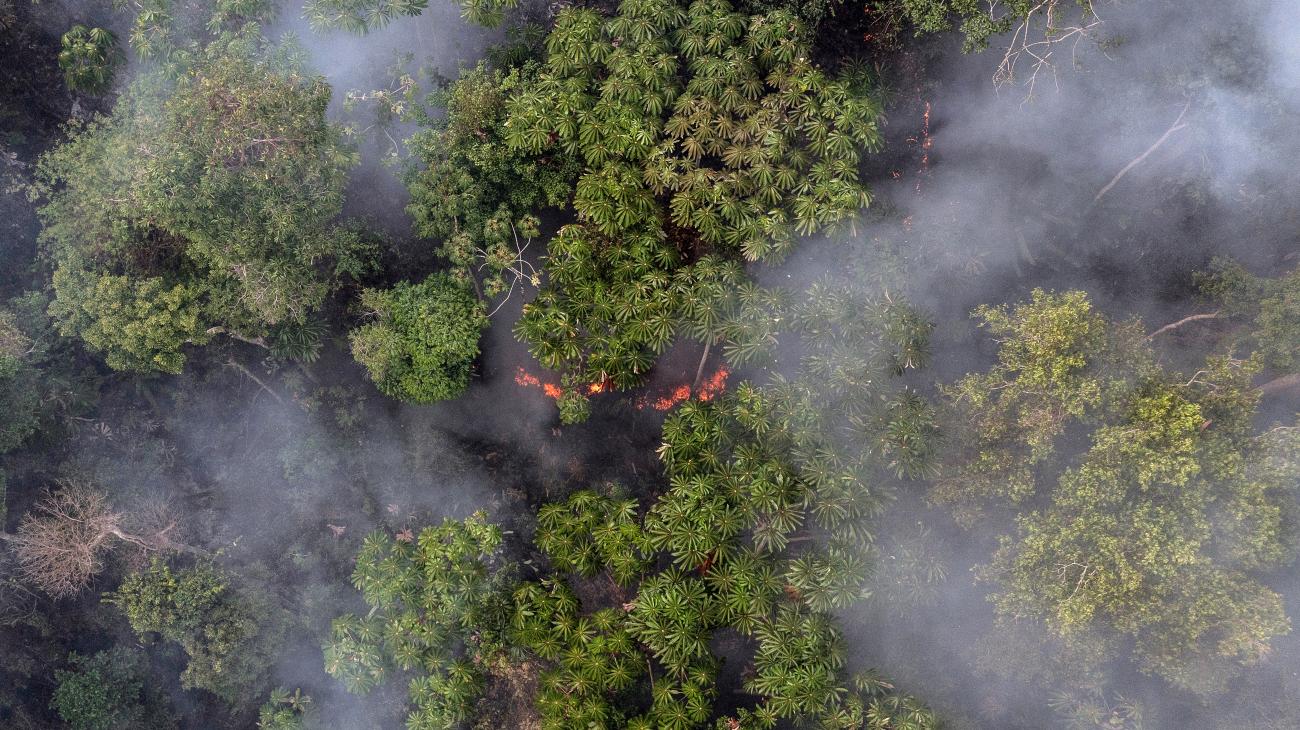In an article in the Brazilian newspaper Folha de S.Paulo climate experts say they are exhausted in the face of tragedies and call for new approaches to inaction. Dr Erika Berenguer is one of those to speak about ecological grief. Read the full article by Giuliana Miranda (paywall).
When she saw the first images of the floods in Rio Grande do Sul at the beginning of the month, Dr Erika Berenguer, a biologist at the Environmental Change Institute (ECI) at the University of Oxford and a senior researcher in studies on the impacts of fire on tropical forests, once again had digestive problems.
In regression up to that point, the condition of gastroparesis – better known as delayed gastric emptying syndrome – worsened. She began to have pain, swelling in her body, and difficulty feeding.
Without having any of the main risk factors for the disease, the disorder was attributed by the medical team to elevated exposure to stress. Erika says that since 2015, the year in which El Niño contributed to devastating fires in the Amazon, she has been facing episodes of anxiety and other physical manifestations related to the situation of the forest and climate change. "It's still very difficult to talk about," she says.

The destruction of the forest also had other physical consequences for the researcher's health. In 2023, in the midst of another fire season and the pollution particles in the air, she contracted pneumonia. Dr Berenguer says it highlights both the loss of biodiversity and the human consequences of the fires:
The first time I felt ecological grief was in 2015. The region where I work, which is in the Lower Tapajós (in Pará, a state in northern Brazil), had 1 million hectares of forests that burned. And I was there, watching the destruction.”
"I had been working in those areas for five years. There was a tree under which our team always ate, because it had perfect shade at noon. In another, we always had to look up, because that's where the monkeys liked to sleep and there was a risk of getting poop on the head. Suddenly, all of that was destroyed.
I know it's hard to translate that to urban people, but it's as if, all of a sudden, all the references that exist in a city, like our favourite coffee and bakery, just cease to exist."

She says that for the first few months, she had "a sharp sensation."
Over the years, it became a chronic pain to see a lot of places I knew deeply no longer exist. Flooding in cities is different from a burned forest, but they are people suffering and losing everything, including their sense of territorial identity."
Against a backdrop of intensifying extreme weather events, record greenhouse gas emissions, and unprecedented heat, with 2023 officially being declared the hottest year in human history, situations like Dr Berenguer's have been increasingly reported by scientists involved with environmental and climate change issues.
A survey by the British newspaper The Guardian recently revealed that, around the world, many leading climate researchers feel desperate, enraged and, in many cases, emotionally affected by the clear failure to act on global warming.
The research included the participation of 380 scientists, all authors or reviewers of reports from the IPCC (UN climate panel), which for more than three decades has warned of the worst consequences of global temperature rise.
The group, which is highly informed about the issue, is pessimistic about the future: only 6% consider that global warming will be limited to 1.5°C, the preferred value of the Paris Agreement, which is considered a goal to avoid more intense weather events. Almost 80% of respondents predict an increase of at least 2.5°C in the planet's average temperature compared to the pre-industrial period.
Even with her concern about the scenario of the forest and environmental changes, Dr Berenguer says that she has not lost her motivation for research and that she remains determined to make a difference in her work.
If I thought there was no way to conserve the Amazon anymore, I wouldn't continue in my work. And it's not just a matter of finding. I have evidence that everything we do to conserve the Amazon now has positive effects. If we despair and do nothing, it's going to be much worse."


